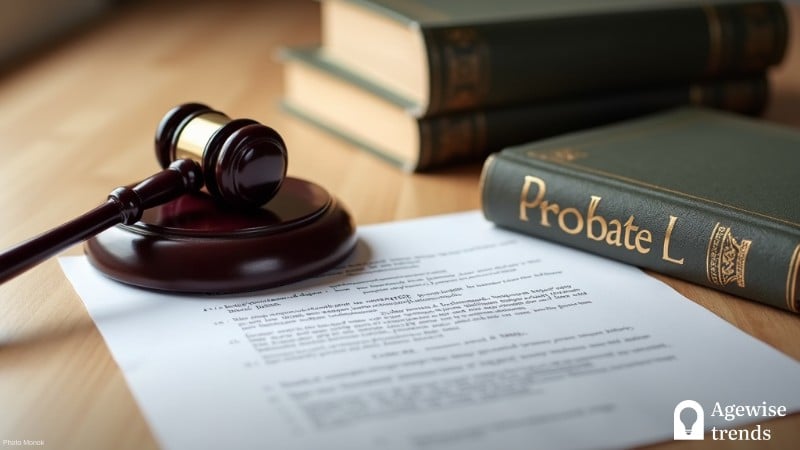Estate planning is a crucial part of preparing for the future, ensuring that your wishes are honored after you pass. One of the key aspects of estate planning is creating and managing a will, a legal document that dictates how your assets will be distributed.
Many individuals, however, often wonder about two important questions: Are wills public records, and what happens when a new will is created? Trace Brooks, a reputable estate planning and probate lawyer based in Atlanta, sheds light on these topics, offering valuable advice on maintaining privacy while ensuring that your estate is managed according to your intentions.
Key Takeaways
Estate planning and the management of wills in Georgia involve balancing legal requirements with maintaining privacy.
- In Georgia, once a will is submitted to probate court, it becomes part of the public record.
- Living trusts and other non-probate strategies can be used to keep estate details private.
- Creating a new will revokes previous ones if it meets legal requirements and includes an explicit revocation clause.
The public nature of wills in Georgia
In Georgia, once a will is submitted to probate court, it becomes part of the public record. Probate is the legal process through which a decedent’s estate is settled, and it includes validating the will and ensuring that the decedent’s instructions are followed.
Trace Brooks explains that probate court files, including the will itself, are accessible to the public. This means that anyone can view the contents of the will once it has been filed, which can raise privacy concerns, especially when sensitive information about assets and beneficiaries is involved.
While probate records are public, not all wills go through probate. If assets bypass probate through trusts, joint ownership, or payable-on-death designations, the will may remain private, and the estate will be distributed accordingly. Brooks suggests considering non-probate strategies like living trusts to keep estate details private and protect sensitive information.
Managing privacy in estate planning
To maintain privacy in estate planning, individuals often turn to strategies like living trusts, which bypass probate and transfer assets directly to beneficiaries. Brooks recommends consulting an estate planning attorney to choose the best option.
Another approach is using “will substitutes” such as payable-on-death accounts or joint tenancy agreements. These methods allow specific assets to be transferred outside of probate, minimizing the exposure of sensitive details.
The impact of creating a new will
As individuals go through life, their circumstances often change—whether through marriage, divorce, the birth of children, or the accumulation or sale of assets. These changes make it important to regularly update one’s will to reflect current wishes. But what happens if you create a new will? Does it automatically override the old one?
In Georgia, a new will generally revokes any prior wills, provided that it meets the legal requirements for a valid will. Trace Brooks explains that when a new will is executed, it supersedes any previous versions unless there is a specific provision within the new will stating otherwise. It’s essential for the new will to explicitly state that all prior wills are revoked to prevent any confusion during probate.
Importance of clear language in revoking old wills
An explicit revocation clause is crucial for ensuring that a new will takes precedence. It clearly states that all prior wills are revoked, preventing any confusion about which will governs the estate. Brooks emphasizes, “Explicit revocation is one of the most effective ways to ensure a new will is honored.”
In cases of conflicting provisions between a new and an old will, Georgia law gives priority to the new will’s terms. To avoid complications, Brooks advises drafting a comprehensive new will that fully replaces the old one.
Handling old wills after a new one Is created
Once a new will has been created, it’s crucial to handle the old will properly to avoid confusion. Brooks recommends physically destroying the old will, such as by shredding or burning it, to ensure it cannot be mistakenly presented during probate. Alternatively, marking the old will as “revoked” and clearly communicating the location of the new will to trusted family members or the designated executor can help eliminate the risk of the old will being used.
Legal requirements for a valid will
For a new will to be valid under Georgia law, it must meet specific legal requirements. Trace Brooks outlines the essential components: The testator must sign the will in the presence of two competent witnesses, who must also sign the document. Additionally, the testator must have the mental capacity to understand the nature and effects of the will at the time of execution. If these requirements are not met, the will could be deemed invalid, and the previous will may remain in effect.
Brooks emphasizes the importance of working with an experienced estate planning lawyer to ensure that all legal formalities are properly executed. Missing even a small detail in the process can result in an invalid will, leading to potential disputes among beneficiaries or delays in estate administration.
The role of codicils in updating a will
Codicils allow individuals to make minor updates to their will, such as changing specific bequests or the named executor. However, they can create risks, such as being misplaced or conflicting with the original will. Brooks recommends using codicils for small adjustments and drafting a new will for significant changes to avoid complications.
Creating and updating a will ensures your assets are distributed as desired. While wills become public records through probate, strategies like living trusts can maintain privacy. It’s important to revoke previous wills to avoid conflicts. Working with an experienced lawyer like Trace Brooks helps navigate estate planning, ensuring your wishes are honored.














